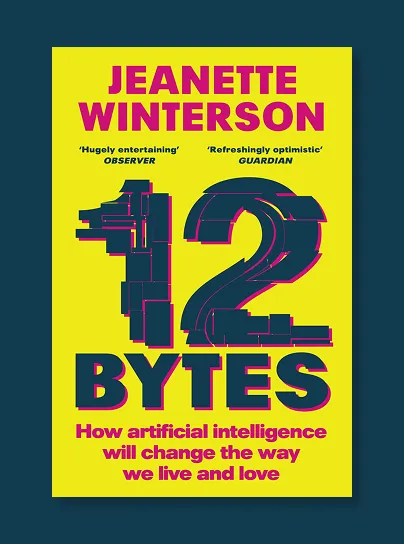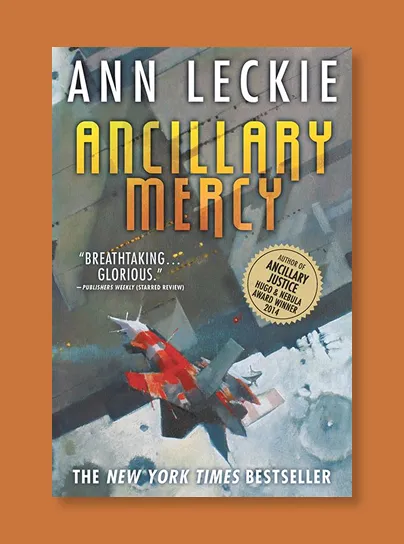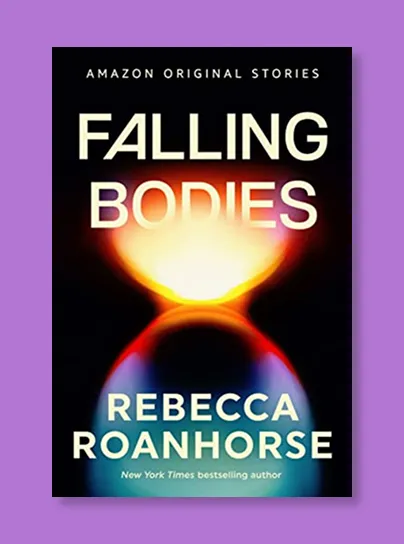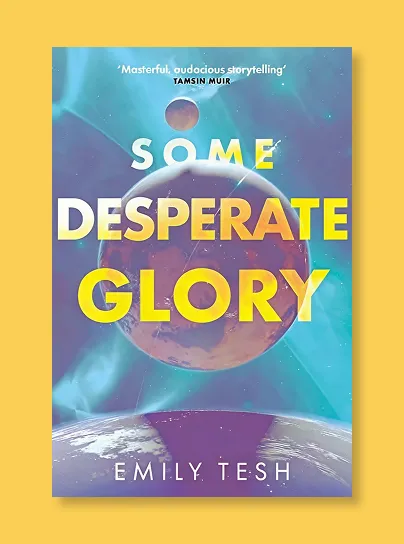
12 Bytes
Back when Ms Winterson arrived on the scene, in 1985 with Oranges are Not the Only Fruit, I became a fan girl. The way she puts words together is unique, slightly off kilter. Her writing is scholarly yet doesn’t follow rules, it is essential and gets right to the heart of the thing yet doesn’t miss a nuance. She’s so bright that I feel smarter while I’m reading her. Her parenthetical comments alone show what a mind she has.
I read all of her books right up until the point that she began writing about technology (The Powerbook, 2000). I was kind of butt-hurt that my favorite surrealist was turning toward tech. It might seem curious, then, that when I decided to read something about AI, I turned to Jeannette Winterson. She’s just so smart and well-read, I knew she’d fill my mind with refined ideas on the topic. And she didn’t disappoint!
In any case, long before we can expect any uploads of consciousness to a new substrate, we will have learned to live with bio-enhancements that extend both our age and our health. As we begin to merge with technology, technology will seem less alien to us. Similarly, we will soon be living with AI in its own embodied (as robots) and non-embodied states, and that will alter our view of the human condition. We are self-obsessed with being human. That is both recent – and wrong. I mean this seriously. Until recently in the Western world, and still now in many parts of the world, people truly believed they lived among, and alongside, spirits and angels, deities and non-worldly creatures. It doesn’t matter that none of these entities were verifiable fact – what matters is the effect on our psychological state. The effect was much less human-centered body anxiety. Especially if you might shape-shift into an ass any second now. Especially if you might be lifted out of your body for an other-worldly experience.
Reading Ray Kurzweil’s book, The Singularity is Near, set Ms. Winterson off on a multi-year reading and researching journey (that included reading the comments on a website that sells sexbots and attending AI tech conferences). The research spun off two books: the 2019 novel Frankissstein, and this book which was published in 2021.
Ms Winterson comes at AI and AGI so eyes-wide-open that, reading her, I felt myself open to positives that I hadn’t considered before. Like that the AI will see right through sexism and racism and irrational hatred.
I have an unlikely hope that as AI becomes more, not less intelligent, and when the AI that is a data-set tools becomes AGI, and starts to look through these data-sets, with all their biases, flaws, and gaps, and learns to questions, then something liberating might start to happen.
Being who she is, Ms Winterston writes at length about women in relation to AI and tech, in general. About how no matter how much men try to make it theirs - the lengths they’ve gone through to keep us out of the sciences, for example - women have always been at the forefront of computer technology.
The tool is out there - no going back - and my view is that we need more women at every level - the ethics, as well as the science - to help humanity manage the new reality we are creating.
Through a series of 12 essays, Ms Winterson begins and ends this work speaking broadly on the topic of AI by discussing the work of English mathematician Ada Lovelace. Through the essays, she postulates on a wide range of possible positives and negatives. She riffs in a way that is inspirational. She’s not afraid to consider all the shades of possibilities that open up to humanity with the coming of AI - both the isolated specialized intelligences and the overarching, general intelligence.
She writes compellingly about how humanity has been wanting and needing to be told what to do and how to behave by a disembodied intelligence for a long time now in the chapter on religion and Gnosticism.
There’s a new kind of quasi-religious discourse forming, with its own followers, its creed, its orthodoxy, its heretics, its priests, its literature, its eschatological framework. Even its own Singularity. It’s AI.
If you want to inform yourself on AI by someone with an enormous mind who went through the trouble to gather her perspectives on this topic and distill them for you, then I highly recommend this book.
This future isn’t about tool or operating system; the future is about co-operating systems.



